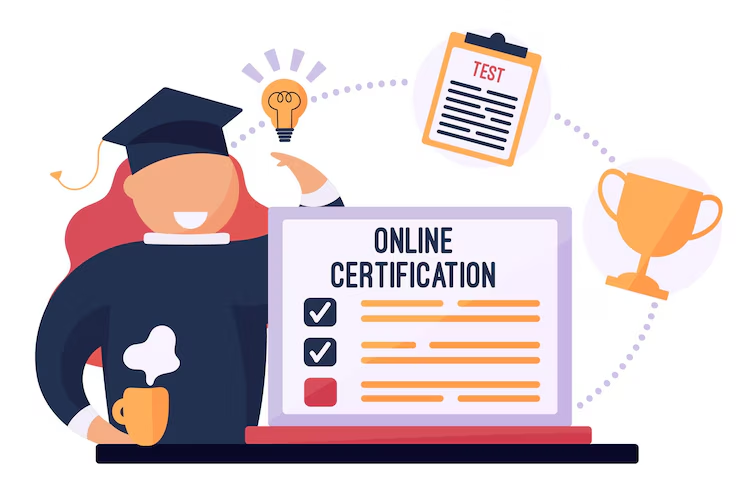Some popular project management methodologies a project manager should get familiar with include:
- Waterfall
- Agile
- Scrum
- Lean
- PRINCE2
Imagine you are leading a team through an important project. It might be that high-budget client initiative with deliverables and stakeholder demands that are the most stringent. Or it might be that multi-phase capstone project that requires you to manage research, collaborate with teammates, and present findings. As deadlines draw closer, problems may come up, resources may run low, communication might falter, and priorities can change. This may cause delays, frustrations, and even failure if a person does not possess project management skills.
With the proper tools and techniques, you will be organized, adjust the plans efficiently, and keep the team focused on delivering results. This is why project management skills are so important: to stay focused and keep the team on track toward the goal.

Project management skills refer to the techniques used to plan, organize, monitor, control, and lead your projects. In general, they range from technical skills such as project methodologies, planning, and budgeting to personal skills or soft skills like leadership, communication, and problem-solving. These sets of capabilities enable task management and team guidance, facilitating the quality of project delivery within the expected time frame and budget.
Project management skills will help acquire better success for the project in progress. Such abilities enable a manager to plan efficiently, manage a group of teams, and solve problems as soon as they appear. With such skills, you align projects to their goals, keep within cost, and make timely completions. If you are beginning to manage projects, or even if you have a little experience under your belt, developing these skills can make a huge difference in how well you run them.
Now, Let’s explore the soft skills, hard skills, and technical skills essential in project management.
Soft skills are very important in project management because they improve how you interact with others, work as a team, and make the project run smoothly. So, let’s have a look at some key soft skills to focus on in project management.

A good project manager will be a good communicator with his or her team. So, communicate your goals and ideas with your team and the client. Good communication clarifies role understanding, solves problems together, and keeps everybody working towards the goal.
Leadership is all about inspiration and guidance. Make sure you have a clear vision of the completed project, how tasks can be divided, and how you can support the completion of the work with your best effort.
While working on any project, problems will come up, so it’s super important to be able to quickly figure out what’s wrong and how to fix it. A good project manager finds a solution and puts the project back on track.
Things typically never go as planned during project development. The ability to be flexible and amenable to change in plans is going to be of assistance according to the demand of the hour. Flexibility about the surroundings helps one navigate the surprises that creep in during the process, which, in turn, keeps the vision of the goals going.
Negotiation is not primarily meant for any business deal. It finds out common interests or resolves a dispute so all those parties can proceed. Good negotiation supports the smooth running of the project.
6. Time Management
Proper time management involves task balancing with the right projects and timely delivery. The completion should be made on schedule without compromising on the quality being delivered.
It is strictly necessary to manage your feelings and those of your team. Having emotional intelligence will ensure an excellent working environment that will keep the morale of your employees high and that will prevent or deal with conflicts.
Value the skills and ideas of each person and motivate your group to work well together. Good teamwork leads to effective problem-solving, ensuring successful outcomes for your project.
Now that we’ve covered the essential soft skills that help you work well with others and manage your team, let’s shift our focus to the hard skills of project management. These are the technical abilities and specific knowledge areas that are crucial for planning, executing, and successfully completing your projects.
 9. Master Technical Tools
9. Master Technical ToolsThink of project management software as the command center for your project. Tools such as Microsoft Project, Asana, Jira, and Trello, combined with other visualization tools like Gantt charts and Kanban boards, will help keep everything in line, from tasks to work allocation and deadlines.
Once you master these tools, you will see everything at once, thus helping you manage your team’s workload, deadlines, and communication in one place. When used properly, such tools save time, reduce confusion, and let the project proceed smoothly.
Think of it as doing a project with a given budget, much like organizing an event with such an amount of money. It would help if you estimated the cost, tracked how much was spent, and ensured that you didn’t overspend. This skill involves developing a realistic budget, monitoring its use, and ensuring the project remains within financial boundaries. Proper cost management ensures that you deliver the project without running into any financial trouble.
Every project bears some potential risk, be it delays, budget issues, or any other kind of unexpected change. Risk management is the identification of potential problems at the earliest possible time, the analysis of the probability of their occurrence, and the formulation of a strategy to avoid their effects should they occur. For example, there can be an alternate material supplier backing up in case the delivery of material faces a delay. This will ensure that the impact of these risks is minimized and they do not serve to distract the project.
Scheduling is the process of creating a roadmap for your project. It involves defining specific deadlines for the accomplishment of different kinds of tasks, defining the essential steps in the process, such as checkpoints, and ensuring all of this is done in the right time order. Good scheduling maintains the project’s time logic, avoids any bottlenecking, and informs the team about when something has to be done. If something changes, then you are going to have to revise the schedule without losing sight of the big picture.
The quality management aspect of your project focuses on ensuring that the final product or result meets the standards you set at the onset. Think about it as a quality assurance check; you want to be sure every single thing goes right, from the looks of it to meeting the needs of the client. This involves setting quality guidelines at the start, regularly checking the work, and improving it if necessary. Our efforts aim to achieve a result that you and your stakeholders are proud of.
Resources include not only money but also other factors, such as people, tools, equipment, and materials. Resource management is all about ensuring that you effectively utilize such resource inputs in the project. For example, if your resources are short in terms of labor or equipment types, allocate them wisely so that everything gets completed on time. It is like putting together the right puzzle pieces to keep the project running smoothly.
It sets the boundaries of your project, such as what it will deliver and, therefore, what it won’t. This is called setting expectations so that people are very clear about exactly what is included in the project scope. For example, in website development, scope management helps to ensure that only agreed-upon features are integrated and none of the extra features that had not been contemplated in the original plan. This will assist in staying focused, thereby preventing scope creep that may cause delays and cost overruns.
These are the people who are interested in your project, such as clients, team members, or company leaders. Stakeholder management requires one to know who the stakeholders are, what they need or require, and to be informed of the progress throughout the implementation. Success is made achievable by effective communication with the stakeholders, which ensures that they are appraised of the project’s progress and that their concerns are addressed.
Having covered hard skills, let’s now move on to the technical skills that are crucial for managing complex projects.
 17. Domain Expertise
17. Domain ExpertiseGain an in-depth understanding of the specific industry or field in which your project operates. Suppose you are working on a healthcare project; in such a case, you would need to understand the laws regulating the healthcare sector, terminologies relevant to the healthcare sector, and best practices for the same.
Get details about your industry to help you make the right choices that align with your industry’s standards. This will also give you an advantage in anticipating potential business challenges and implementing effective solutions. The absence of domain expertise may lead to overlooking vital factors that will affect the project’s success.
This involves familiarity with different approaches to project management, such as Agile, Waterfall, or Scrum. Each method has advantages and associated disadvantages, depending on the kind of project one deals with. The proper methodology ensures the project will be managed effectively and according to the working style.
For example, Agile is fine when a project requires flexibility and frequent changes, while Waterfall is good for projects with well-defined stages. Understanding when and how to apply them assures smoother project execution.
Data analysis involves developing an ability to interpret project data, performance metrics, financials, or timelines to gain insights and make data-driven decisions. Good data analysis skills and trend analyses will allow you to track a project’s progress, identify possible future risks, and make adjustments that help optimize resources and improve performance. This will aid in making informed decisions that ensure the project’s success.
It involves creating detailed reports and proper documentation of progress, milestone achievement, problems you encountered, and solutions to a project. Good documentation ensures that all those working on a project are current and that there is a record of what was done, what wasn’t, and what still needs to be finished. This also provides for effective communication with stakeholders, adding transparency and serving as a reference for future projects.
This skill involves knowing how procurement works, from managing relationships with vendors to contracts related to a project. Procurement and contract management ensure you get the right resources, such as materials or services, at the best possible cost the moment you need them. Mismanagement of contracts or procurement may lead to project delays, increased costs, or even non-compliance with legal standards.
This refers to basic knowledge of IT systems and technologies relevant to your project, such as software, hardware, or digital tools. Even if you’re not an IT expert, knowing how your team uses technology can enable you to communicate effectively with the technical team, predict possible technical challenges, and, therefore, avoid situations where everything falls into the project’s workflow. This is important for aligning technical requirements with the project’s goals.
This refers to knowledge of applicable laws and regulations for your project, such as industry-specific rules, safety standards, or legal contracts. Compliance is not an option; it is a requirement. Either ignoring or non-compliant implementation of the legal and regulatory requirements attracts fines, litigation, or project cancellations. The assurance of conformance to all applicable laws protects the project and the organization from unwarranted legal risks.
Strategic thinking is the process of setting the project’s goals and objectives in relation to the organization’s broader goals and objectives and making decisions that, in the long run, will be in the best interest of both the project and the company. Through strategic thinking, one can see the big picture, which ensures that your immediate objectives are met and relevant to the organization’s growth. These will, therefore, enable you to make decisions that will steer the company in a positive direction and put the project on the right course toward success.
Efficient project management requires good organizational skills, such as managing documents, arranging files properly, and keeping the project workspace well-ordered.
Skills like understanding others’ feelings, listening well, and creating good relationships are important for the team to work well together and for successful cooperation with the people involved.
Related Article – What is Interpersonal Communication?
Having a sense of humour is useful for project managers because it can make relationships with team members better, calm down stressful moments, and contribute to a happy environment in the project.
Patience is an important ability for project leaders to deal with difficulties, control what stakeholders anticipate, and steer through the complexities of projects while remaining calm.
Project managers must keep a professional look and behave well to build trust and give confidence to those involved in the project, like stakeholders and team members.
Project managers who are good at delegating can give tasks to team members according to what they do best. This can help the team members feel more responsible for their own work.

Apply your skills by participating in or leading projects, even on a small scale, in your current job, or through volunteer opportunities. Request feedback from colleagues and mentors in order to refine your approach and techniques.
 Practice clear and effective communication to manage your team and stakeholders better. Work on motivating and guiding your team, resolving conflicts, and making decisions that benefit the project.
Practice clear and effective communication to manage your team and stakeholders better. Work on motivating and guiding your team, resolving conflicts, and making decisions that benefit the project.
 Learn to create detailed project plans, set realistic timelines, and operate within budgets. Develop schedule, resource, and project progress-tracking skills.
Learn to create detailed project plans, set realistic timelines, and operate within budgets. Develop schedule, resource, and project progress-tracking skills.

Keep up with new technologies and tools that can enhance your project management processes.
To get started with the basics of PMP, check out the following Blogs:
Related Post: important skill for managing creative projects in advertising
For deeper insights and strategies in project management, refer to the blogs below:
To improve your project management skills, consider looking at insightful material. For example, if you wish to enhance your foundational knowledge, check out Project Management Tutorial. This can give you useful information, practical advice, and the best methods used in the industry so you can be better at your job as a project manager.
Find out our PMP Training in Top Cities/Countries
| India | Other Cities/Countries |
| Bangalore | UK |
| Hyderabad | US |
| Pune | Canada |
| Chennai | Australia |
| Mumbai | Singapore |
| Kolkata | Saudi Arabia |
Project management skills are essential for successfully completing challenging tasks. By learning both technical and interpersonal skills, project managers can handle the complicated situations that arise within projects, guide their teams to reach the project goals, and benefit their companies. If you want to be a project manager or improve what you already know, it is good to put effort into learning more about managing projects.
Keep in mind that improving skills for managing projects is a continuous process. As you keep learning, use what you know and look for opportunities to grow.
Check out the Project Management Masters Program offered by Edureka to kickstart your learning journey today!
Related Post: What are the best ways to build trust with clients and stakeholders
Project management skills include a combination of technical capabilities and the skill to interact well with others, allowing project managers to plan, carry out, and oversee projects with full efficiency.
The significance of skills in managing projects can differ based on the project itself and the organisation. Still, three critical abilities for those who manage projects include good communication, strong leadership, and problem-solving skills.
Four main parts of managing a project, include- Scope, Time, Cost and Quality.
Project management involves a mix of technical abilities and interpersonal skills, which can be pretty challenging for many people. However, people with natural leadership abilities can easily navigate this role with full responsibility.
The three major challenges in project management are:
 Thank you for registering Join Edureka Meetup community for 100+ Free Webinars each month JOIN MEETUP GROUP
Thank you for registering Join Edureka Meetup community for 100+ Free Webinars each month JOIN MEETUP GROUPedureka.co